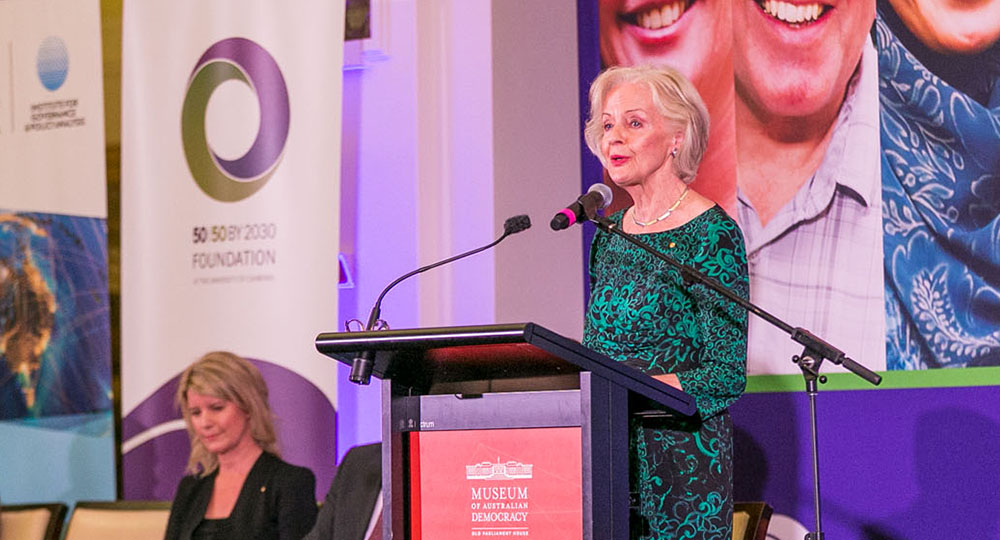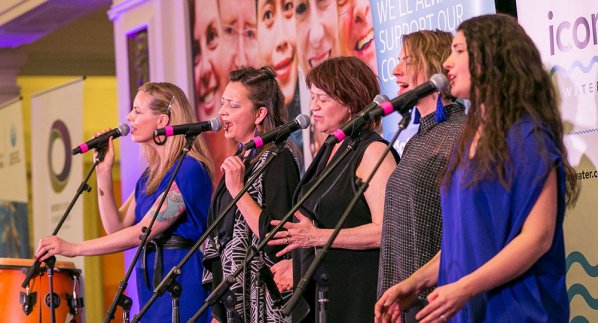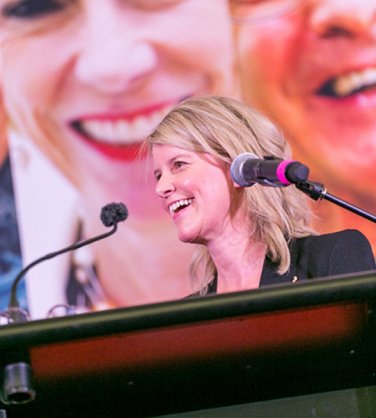In her role as Patron of the 50/50 by 2030 Foundation, Dame Quentin Bryce AD CVO commenced her speech by acknowledging with a smile that though she wished there was no need for the 50/50 Foundation to exist, she remained confident of what can be achieved.
She reminded the audience that Australia did produce some of the most progressive equal employment opportunity (EEO) and affirmative action legislation within the walls of Old Parliament House. This EEO legislation became the envy of women the world over at the time, but she pointed out that it was achieved through strength in numbers and support in powerful places.
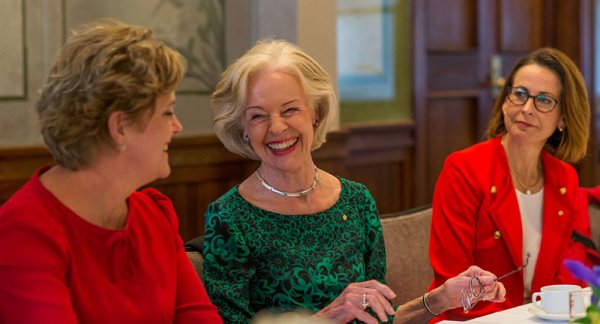
British High Commissioner to Australia Menna Rawlings CMG, Dame Quentin Bryce AD CVO and Virginia Haussegger AM.
Dame Quentin noted that the evening was a celebration of re-focusing collective efforts, adding that it is important to take a moment to applaud hard-won achievements. While she acknowledged that the current data on gender inequality gives pause for thought, she implored: ‘let’s not lose sight of how far we’ve come, as our success gives fuel to the Foundation’s future efforts’.
Let’s not lose sight of how far we’ve come, as our success gives fuel to the Foundation’s future efforts.
While there is progress on the path to gender parity to celebrate, she argued that it remains disappointingly patchy: ‘We have been talking about improving the numbers of women in Australia’s public sector leadership for as long as I can remember’.
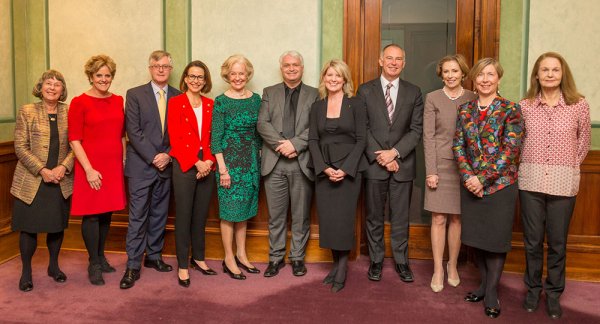
Members of the 50/50 by 2030 Foundation Advisory Council and Steering Committee (L to R): Emeritus Professor Meredith Edwards AM, Ms Menna Rawlings CMG, Dr Martin Parkinson AC PSM, Adjunct Professor Virginia Haussegger AM, Dame Quentin Bryce AD CVO, Professor Mark Evans, Ms Natasha Stott Despoja AM, Dr Gordon de Brouwer PSM, Adjunct Professor Carmel Mcgregor PSM, Ms Jane Halton AO PSM, Dr Helen Sykes AM.
She stated that she was heartened to see that after last week’s announcement about a reshuffle of Government Department Secretaries, we now have eight women heading up Commonwealth Departments (out of 18 in total).
We have been talking about improving the numbers of women in Australia’s public sector leadership for as long as I can remember.
Women (who comprise more than half of the APS) now make up just over 42% of the Senior Executive Service (SES). ‘These are significant numbers, and the numbers matter’, she said.
